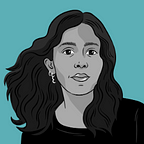Embracing discomfort can make you a better researcher
I’d never imagine I’d end up here. I recall the conversation as though I had it yesterday. As a researcher, you never forget one of your first interviews. Mine was about elder and palliative (aka end of life) care. My first job out of college was at a startup providing telemedicine solutions to nursing homes in New York. This meant that I spent countless hours talking to nursing home residents, doctors, nurses and loved ones.
As a young person, bright-eyed, naive and excited about life, spending time with folks at the end of theirs was not only eye-opening but humbling. It often surprised me when people were willing to share their story with me, a stranger. I’d hear the end-of-life wishes of someone vulnerable and decades older than me and feel helpless and introspective.
But after years in the field, I’ve learned that embracing that feeling and seeing my discomfort as an opportunity to connect deeper has taught me invaluable lessons and made me a better researcher. Good interviews should feel organic — there should be moments when you are uncertain. You engage in conversations where you learn and develop empathy for your interviewees’ story. Here are three lessons that have stuck with me over the last decade-ish of being an interviewer and researcher who embraces moments of uncertainty and unease:
Keep an open mind
Even after I’d changed jobs, I went on to interview more elders in ethnic communities in neighborhoods like Chinatown, Crown Heights and Harlem across the five boroughs of New York City. I learned that culture, language and elder care varied by occupation, lifestyle and personal dreams. I had to think of new ways to ask questions and approach delicate, and rarely straightforward, situations arising from health care, upbringing, immigration and culture. The added layers of interviewing someone in person, on camera or with other people observing presented their own challenges and new angles of a story unfolding for each interviewee.
I don’t know about you, but sometimes I tend to get very focused on what I want, as a researcher. However, as I learned the hard way, it is important to be an active listener and stay open to what your subjects are actually saying and not constantly fitting their stories to your own preconceived notions. Good interviewers embrace diverse viewpoints, even if they challenge the foundation of their research questions. Keeping an open mind is your most powerful tool as an interviewer.
Embrace nuance
Outside of my role as a researcher, I’m also a freelance journalist. All this interviewing people also meant figuring out for myself how to make sense of my own community in New York and the world I live in. I covered stories around issues plaguing my neighborhood such as food security, transit and poverty. With each story, it could have been easy to think everything was set up in a black or white manner, but it taught me the importance of nuance — a principle that sticks with me to date.
As someone interviewing many people who are passionate about ending inequity — their own and others — sitting with discomfort becomes a second language. Early in my career, I once interviewed a woman who pushed back and didn’t like a question I had asked her. Her immediate response was something like I wasn’t expecting this type of interview or question and she went on guard for the rest of the interview. With any inquiry, a good interviewer is prepped with a list of questions in each scenario but is also willing to take risks and go off script when needed. Confrontation, whether to the interviewer or interviewee takes courage, but gathering the truth and reality is part of your job.
Sometimes your user of a product will be confronted with their own mistakes mid-interview or during a usability session. They may say something like ‘it seems so obvious to me now’ and in that moment leading with empathy on their own self-confrontation to an issue is key.
Discomfort, confrontation, silence and tough conversations are all part of the job. While researchers may have an innate talent for active listening, with experience comes the wisdom and discipline to practice finding nuance and feeling comfortable and growing in that discomfort — this takes you to the next level as a researcher.
Find the whole story
If you’ve read this far, you are probably a researcher looking to be a better interviewer and storyteller. When you want the whole picture sometimes that means digging for stories in the right places — even if they don’t want to be found. From unconscious biases to personal preferences, every interviewee comes to an interview with their finite set of knowledge.
Researchers swim in ambiguity. We ask questions and are ready to read between the lines. You think beyond the words that are said to you to how they are conveyed, the shift in body language, eye contact and what’s not said. The prospect of the unknown should keep you excited and curious. While the unknown can feel uncomfortable at first, it’s sometimes where you can unlock the bigger picture.
Recognizing the power of diverse interactions in my community — particularly the ones that made me feel uncertain or uncomfortable — ultimately made me a better researcher.
When researchers are open to new insights that may shape their research questions, seek and recognize nuance in their findings and build a whole story, it can lead to better outcomes for their organizations and themselves. It also makes them successful and sought after.
To learn more about Pinterest Design, follow us on LinkedIn.
